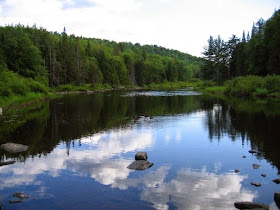Below is an excerpt from Neil Gaiman's acceptance speech for winning the Newbury Award for
The Graveyard Book.
I've admired Gaiman from afar, through
quotes and tidbits, for quite some time.
It's time to start reading.
It's time to start telling new stories.
~~~~~~~~~~~~~~~~~~~~~~~~~~~~~~~~~~~~~~~~~~~~~~~~~~~~~~~~~~~~~~~~~~~~~~~~
More...from the same speech:
"
I've been writing now for a quarter of a century.
When people tell me that my stories helped them through the death of a
loved one--a child, perhaps, or a parent--or helped them cope with a disease,
or a personal tragedy; or when they tell me that my tales made them become
readers, or gave them a career; when they show me images or words from my books
tattooed on their skin as monuments or memorials to moments that were so
important to them they needed to take them with them everywhere ... when these
things have happened, as they have, over and over, my tendency is to be polite
and grateful, but ultimately to dismiss them as irrelevant.
I did not write the stories to get people through the hard places and the
difficult times. I didn't write them to make readers of nonreaders. I wrote
them because I was interested in the stories, because there was a maggot in my
head, a small squirming idea I needed to pin to the paper and inspect, in order
to find out what I thought and felt about it. I wrote them because I wanted to
find out what happened next to people I had made up. I wrote them to feed my
family.
So I felt almost dishonorable accepting people's thanks. I had forgotten
what fiction was to me as a boy, forgotten what it was like in the library:
fiction was an escape from the intolerable, a doorway into impossibly
hospitable worlds where things had rules and could be understood; stories had
been a way of learning about life without experiencing it, or perhaps of
experiencing it as an eighteenth-century poisoner dealt with poisons, taking
them in tiny doses, such that the poisoner could cope with ingesting things
that would kill someone who was not inured to them. Sometimes fiction is a way
of coping with the poison of the world in a way that lets us survive it.
And I remembered. I would not be the person I am without the authors who
made me what I am--the special ones, the wise ones, sometimes just the ones who
got there first.
It's not irrelevant, those moments of connection, those places where
fiction saves your life. It's the most important thing there is.
I was, as I said, twenty-five years old, and I had an idea
for a book and I knew it was a real one.
I tried writing it, and realized that it was a better idea
than I was a writer. So I kept writing, but I wrote other things, learning my
craft. I wrote for twenty years until I thought that I could write The
Graveyard Book--or at least, that I was getting no better.
I wanted the book to be composed of short stories, because.
The Jungle Book was short stories. And I wanted it to be a novel, because it
was a novel in my head. The tension between those two things was both a delight
and a heartache as a writer.
I wrote it as best I could. That's the only way I know how
to write something. It doesn't mean it's going to be any good. It just means
you try. And, most of all, I wrote the story that I wanted to read.
It took me too long to begin, and it took me too long to
finish. And then, one night in February, I was writing the last two pages.
In the first chapter
I had written a doggerel poem and left the last two lines unfinished. Now it
was time to finish it, to write the last two lines.
So I did. The poem, I learned, ended:
Face your life
Its pain, its
pleasure,
Leave no path
untaken.
And my eyes stung, momentarily. It was then, and only then,
that I saw clearly for the first time what I was writing. I had set out to
write a book about a childhood it was Bod's childhood, and it was in a
graveyard, but still, it was a childhood like any other; I was now writing
about being a parent, and the fundamental most comical tragedy of parenthood:
that if you do your job properly, if you, as a parent, raise your children
well, they won't need you anymore. If you did it properly, they go away. And
they have lives and they have families and they have futures.
I sat at the bottom of the garden, and I wrote the last page
of my book, and I knew that I had written a book that was better than the one I
had set out to write. Possibly a book better than I am.
You cannot plan for
that. Sometimes you work as hard as you can on something, and still the cake
does not rise. Sometimes the cake is better than you had ever dreamed.
And then, whether the work was good or bad, whether it did
what you hoped or it failed, as a writer you shrug, and you go on to the next
thing, whatever the next thing is.
That's what we do."















